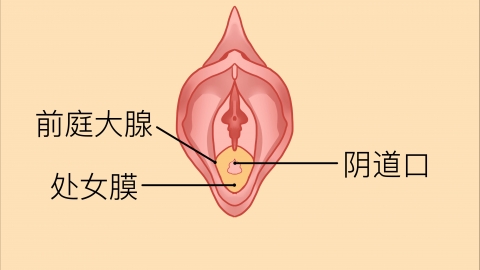What happens if the hymen is ruptured?
Generally speaking, the term "hymen" refers to the vaginal hymen. After the vaginal hymen ruptures, possible symptoms may include mild pain, slight bleeding, temporary vaginal discomfort, psychological and emotional changes, or no obvious specific reaction. Specific manifestations vary from person to person. Detailed analysis is as follows:

1. Mild pain: When the vaginal hymen ruptures, due to local tissue stretching or tearing, brief mild pain may occur, often described as a stabbing or distending pain. The pain usually lasts for a short time, typically easing within minutes to tens of minutes. The degree of pain is related to individual pain tolerance and the cause of rupture.
2. Slight bleeding: The vaginal hymen contains a small number of capillaries, and slight bleeding may occur after rupture. The blood is usually light red or bright red in color, with generally minimal blood loss, typically a few drops to tens of milliliters. In most cases, the bleeding stops spontaneously within 1-2 days and does not require special treatment.
3. Temporary vaginal discomfort: Within a short time after rupture, there may be a slight foreign body sensation or feeling of pressure at the vaginal entrance, particularly noticeable when walking or sitting. This discomfort typically subsides gradually within 1-2 days as the local tissue undergoes minor healing.
4. Psychological and emotional changes: Some individuals may experience temporary nervousness, anxiety, or unease due to their understanding of hymenal rupture, while others may not experience significant emotional fluctuations. Emotional responses mainly depend on personal psychological state, cultural beliefs, and other factors, and negative emotions can be alleviated through communication with trusted individuals.
5. No obvious specific reaction: In some cases, individuals with better elasticity and thinner vaginal hymen or those whose hymen ruptures due to non-sexual factors such as vigorous exercise or accidental impact may experience only minimal sensations, or even no noticeable pain, bleeding, or discomfort, making the rupture difficult to detect.
In daily life, after the vaginal hymen ruptures, it is important to maintain external genital hygiene by washing the vulva with warm water, avoiding sexual intercourse or bathtub bathing in the short term to reduce the risk of infection. At the same time, it is important to rationally view the vaginal hymen, avoid excessive anxiety, and maintain a positive mindset.




